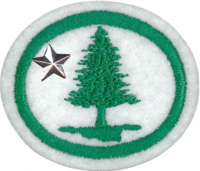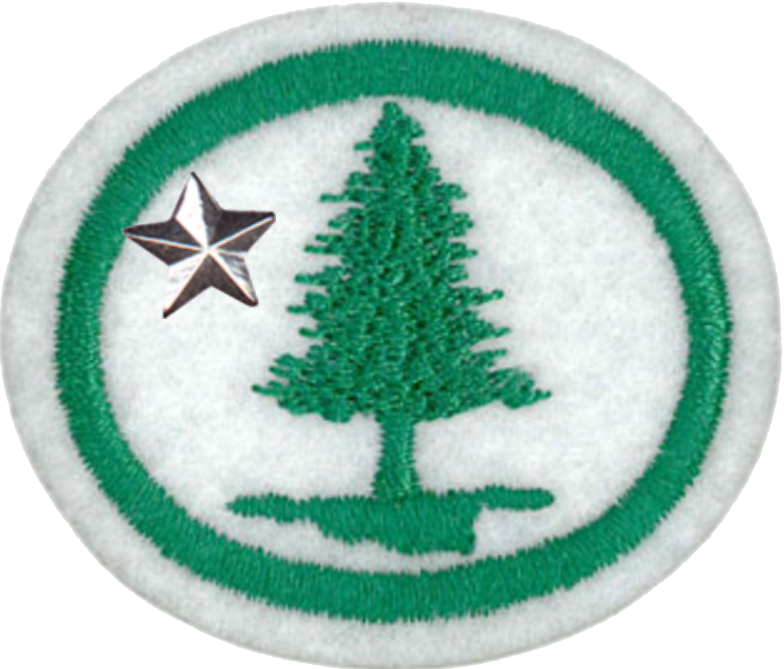Difference between revisions of "AY Honors/Trees - Advanced/Requirements"
From Pathfinder Wiki
< AY Honors | Trees - AdvancedAY Honors/Trees - Advanced/Requirements
Jomegat bot (talk | contribs) (Bot: Automated import of articles *** existing text overwritten ***) |
m |
||
| Line 1: | Line 1: | ||
{{HonorSubpage}} | {{HonorSubpage}} | ||
| − | |||
| − | |||
<section begin=Body /> | <section begin=Body /> | ||
| − | |||
<b>1. <section begin=req1 /><noinclude><translate><!--T:1--> | <b>1. <section begin=req1 /><noinclude><translate><!--T:1--> | ||
| − | </noinclude>Have the Trees Honor. | + | </noinclude>Have the Trees Honor. |
<noinclude></translate></noinclude><section end=req1 /></b> | <noinclude></translate></noinclude><section end=req1 /></b> | ||
| Line 79: | Line 76: | ||
<b>5. <section begin=req5 /><noinclude><translate><!--T:17--> | <b>5. <section begin=req5 /><noinclude><translate><!--T:17--> | ||
| − | </noinclude>Name six families of trees in the angiosperm class and three families in the gymnosperm class. | + | </noinclude>Name six families of trees in the angiosperm class and three families in the gymnosperm class. |
<noinclude></translate></noinclude><section end=req5 /></b> | <noinclude></translate></noinclude><section end=req5 /></b> | ||
<b>6. <section begin=req6 /><noinclude><translate><!--T:18--> | <b>6. <section begin=req6 /><noinclude><translate><!--T:18--> | ||
| − | </noinclude>Know and describe the function of leaves in the life of a tree. | + | </noinclude>Know and describe the function of leaves in the life of a tree. |
<noinclude></translate></noinclude><section end=req6 /></b> | <noinclude></translate></noinclude><section end=req6 /></b> | ||
<b>7. <section begin=req7 /><noinclude><translate><!--T:19--> | <b>7. <section begin=req7 /><noinclude><translate><!--T:19--> | ||
| − | </noinclude>Name the families of trees in your area which have opposite leaves. | + | </noinclude>Name the families of trees in your area which have opposite leaves. |
<noinclude></translate></noinclude><section end=req7 /></b> | <noinclude></translate></noinclude><section end=req7 /></b> | ||
| Line 179: | Line 176: | ||
<b>10. <section begin=req10 /><noinclude><translate><!--T:42--> | <b>10. <section begin=req10 /><noinclude><translate><!--T:42--> | ||
| − | </noinclude>Identify ten deciduous trees by their “winter” characteristics, (features other than leaves) such as twig and bud, characteristic form, and growth habits. | + | </noinclude>Identify ten deciduous trees by their “winter” characteristics, (features other than leaves) such as twig and bud, characteristic form, and growth habits. |
<noinclude></translate></noinclude><section end=req10 /></b> | <noinclude></translate></noinclude><section end=req10 /></b> | ||
<section end=Body /> | <section end=Body /> | ||
Revision as of 19:37, 29 March 2021
1. Have the Trees Honor.
2. Collect, identify, press, and mount leaves of 35 different species of trees.
3. Separately collect, press, mount, and label specimens that demonstrate the following terms:
- a. Serrate
- b. Doubly serrate
- c. Entire
- d. Crenate
- e. Dentate
- f. Lobe
- g. Incise
- h. Whorled
- i. Opposite
- j. Alternate
- k. Pinnately compound
- l. Triple compound (if possible)
4. Complete the following:
- a. Describe the advantages in using the Latin or scientific names.
- b. Of what use are the two parts of a scientific name?
5. Name six families of trees in the angiosperm class and three families in the gymnosperm class.
6. Know and describe the function of leaves in the life of a tree.
7. Name the families of trees in your area which have opposite leaves.
8. Define the following terms:
- a. Stipule
- b. Petiole
- c. Blade
- d. Pitch
- e. Heartwood
- f. Sapwood
- g. Springwood
- h. Summerwood
- i. Annual ring
- j. Cambium
- k. Xylem
- l. Phloem
9. What families of trees have:
- a. Thorns
- b. Catkins
- c. Winged seeds
- d. Acorns
- e. Pods
- f. Capsules
- g. Nuts
- h. Berries
10. Identify ten deciduous trees by their “winter” characteristics, (features other than leaves) such as twig and bud, characteristic form, and growth habits.


